Crowd fills Rusty Parker Park for Rally Against Racism
June 18, 2020 | By Jesse McDougall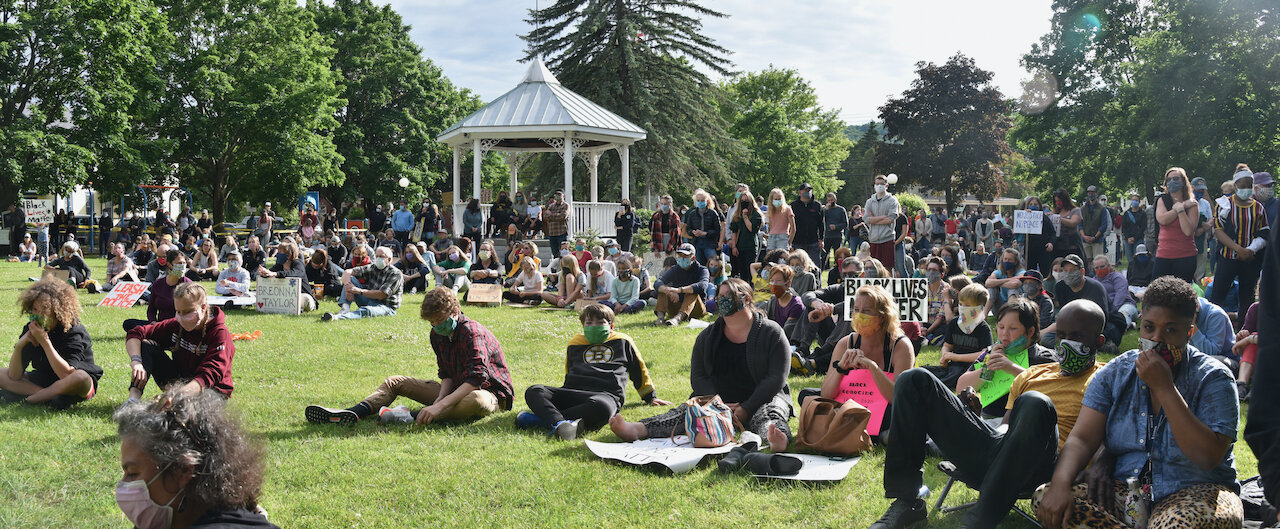
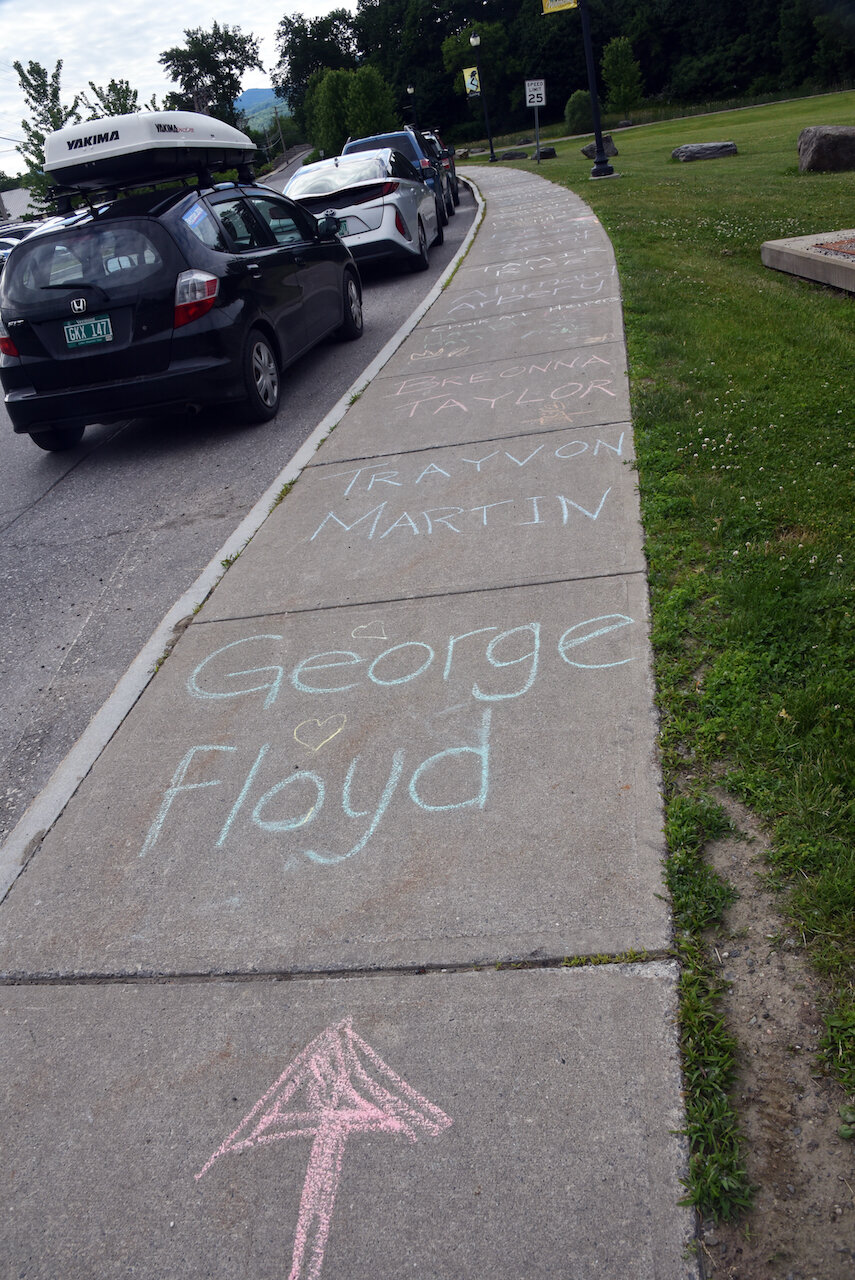

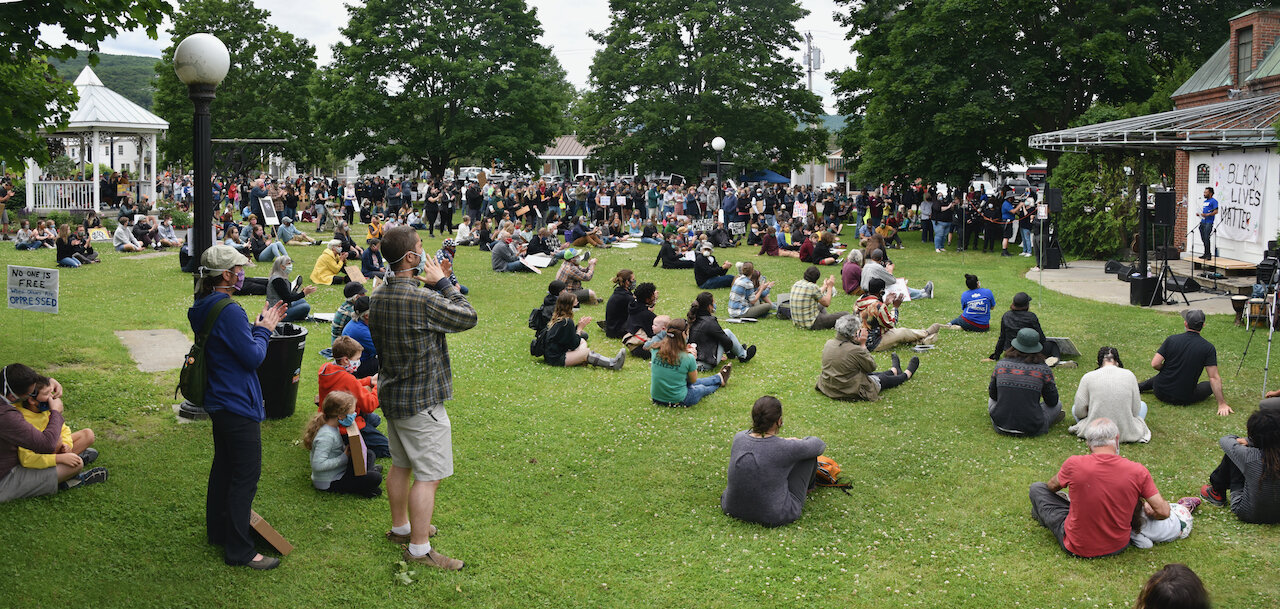




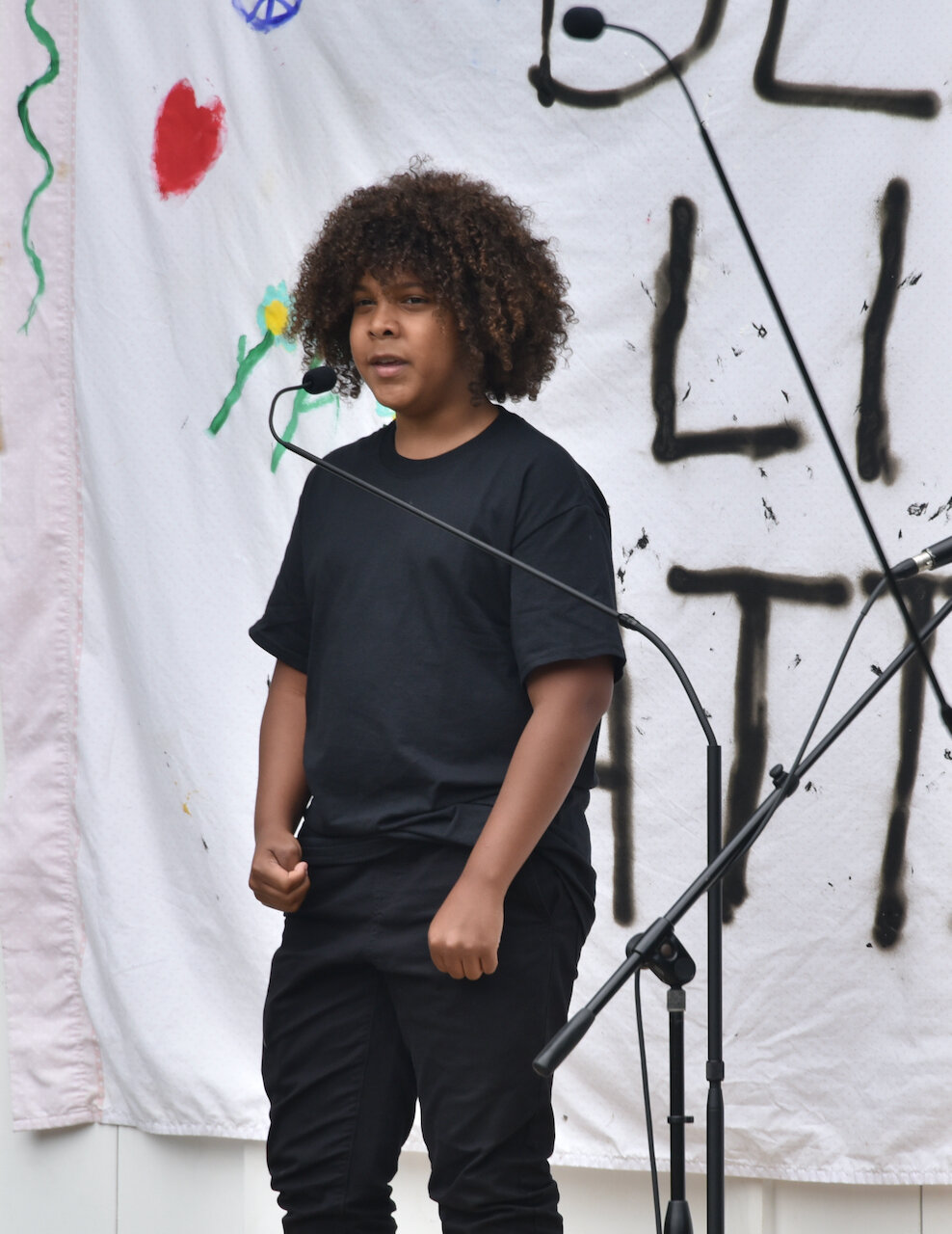









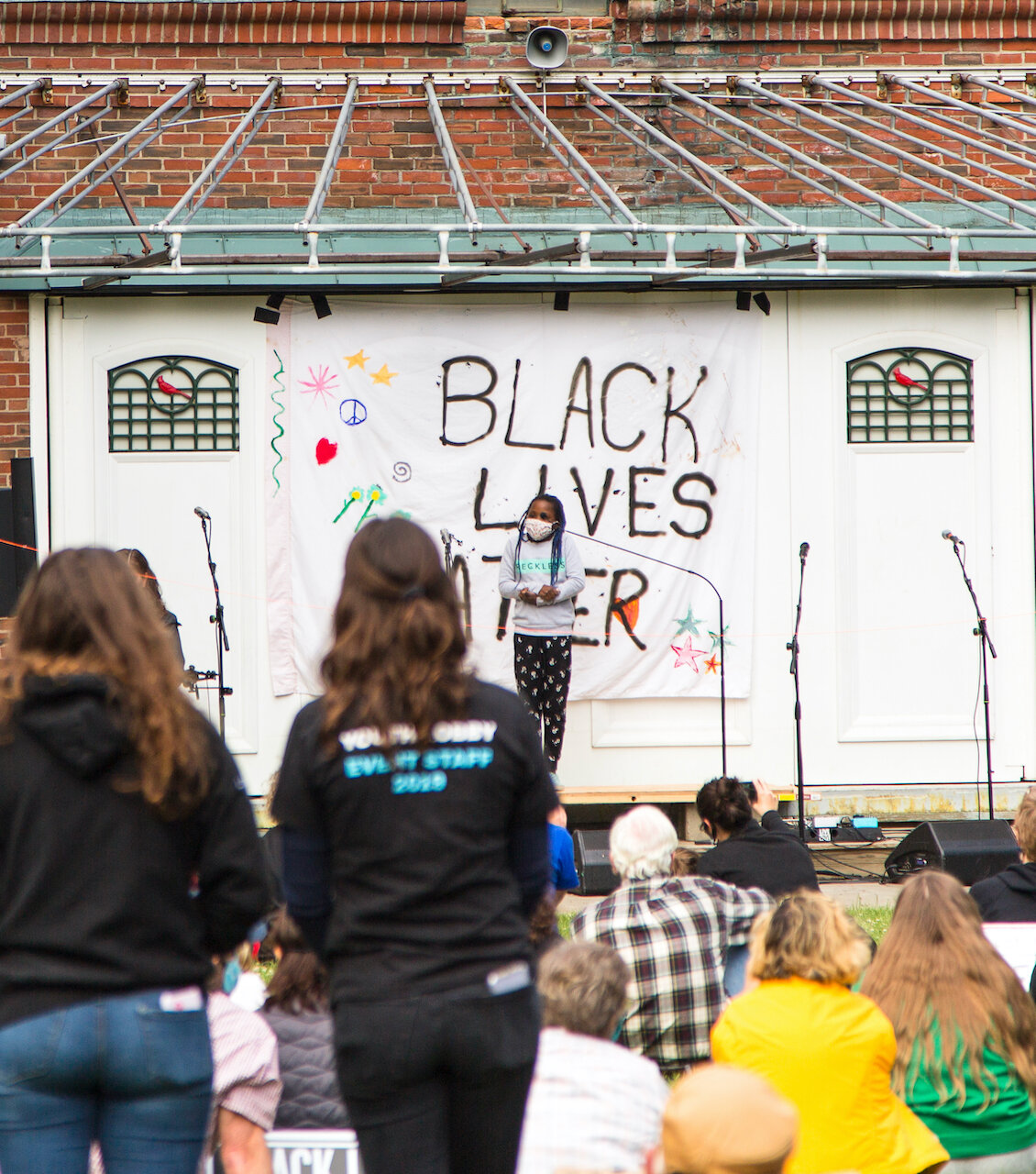
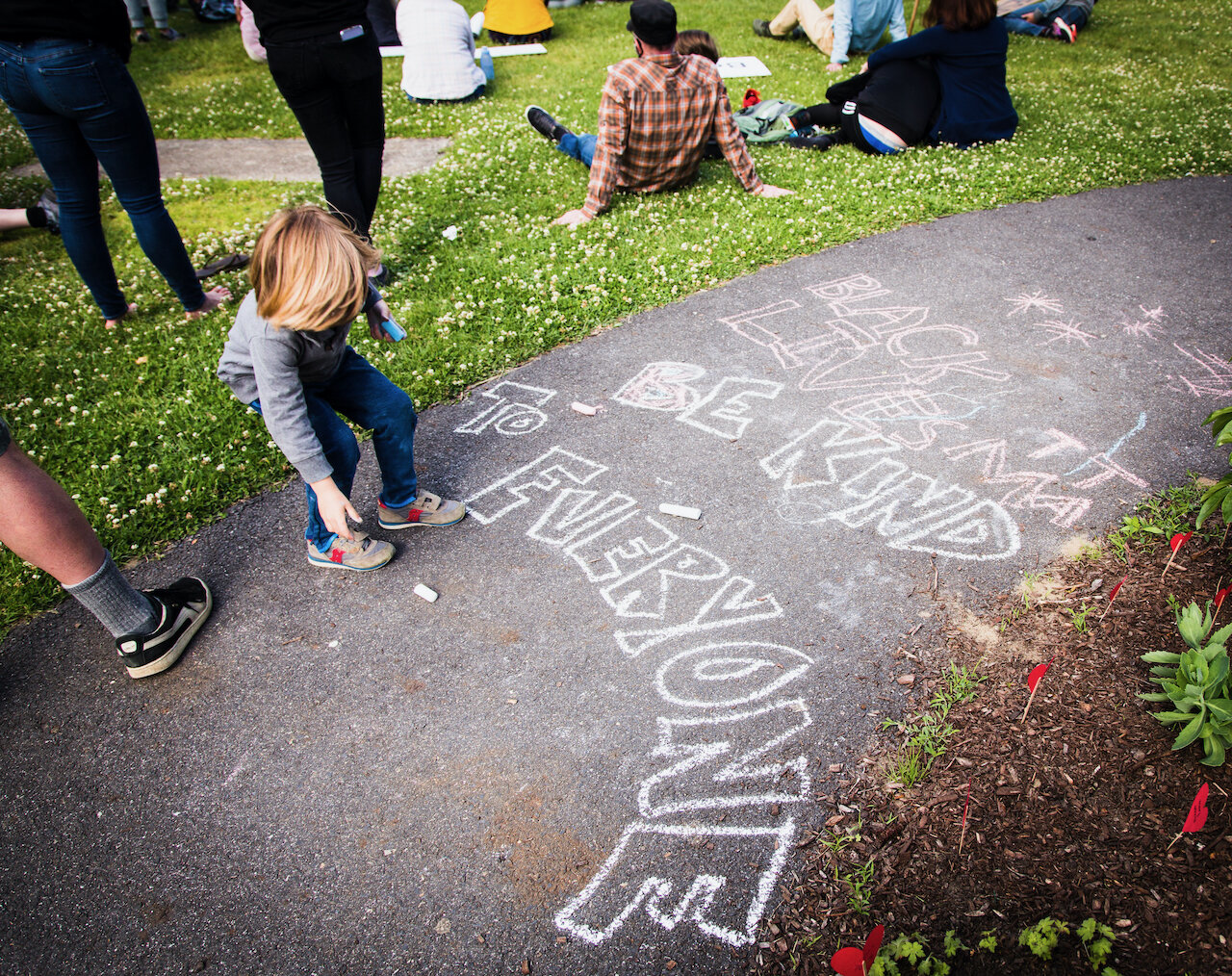


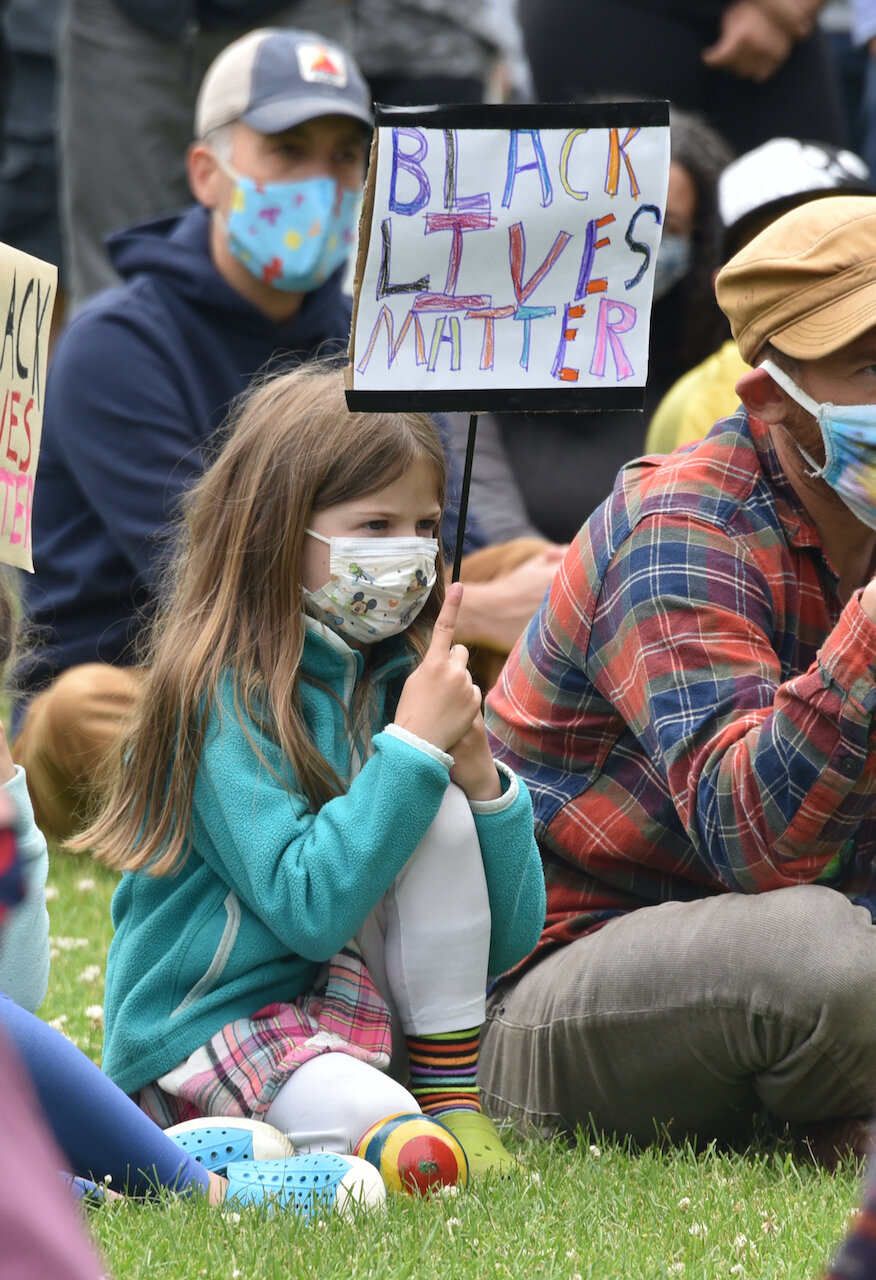
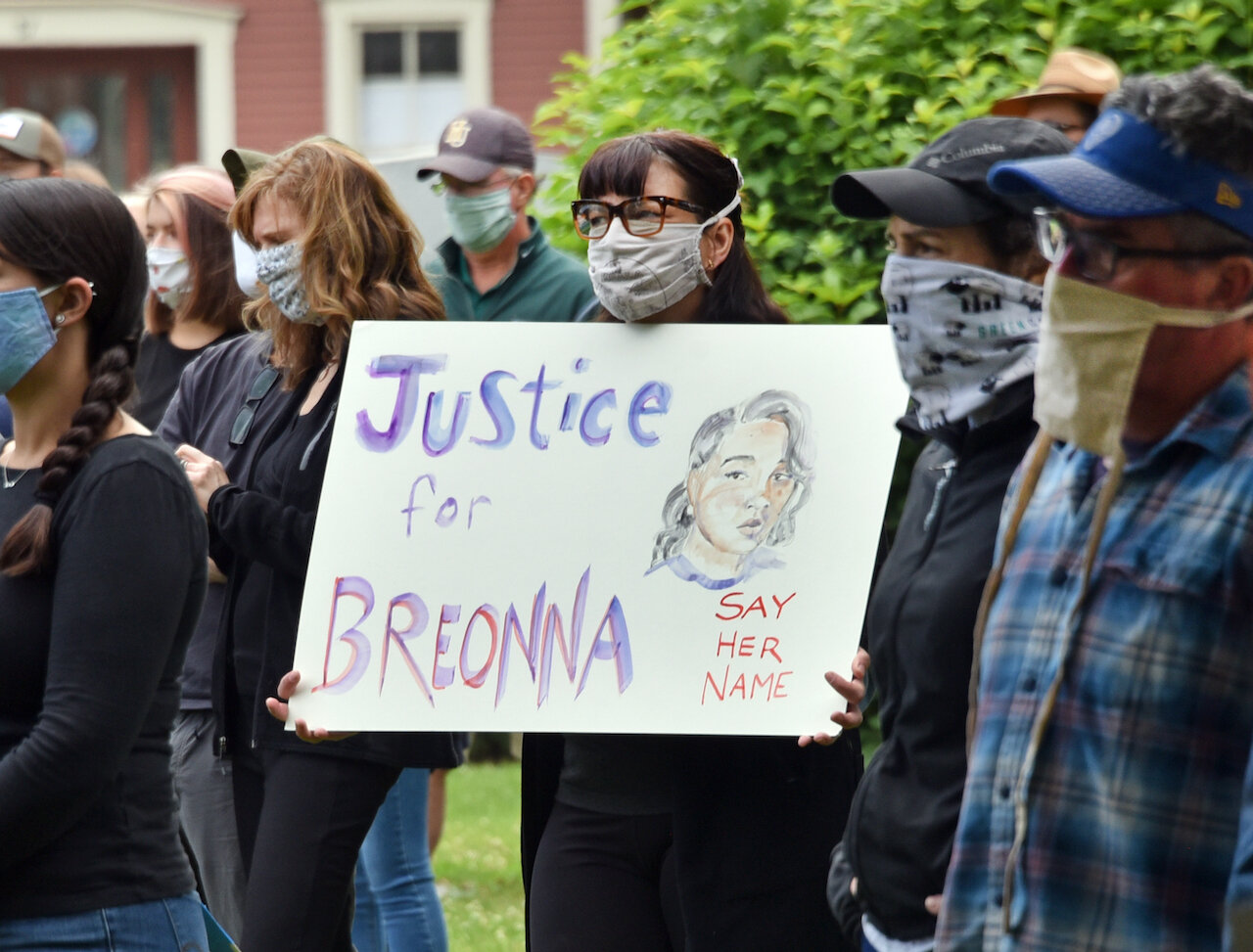

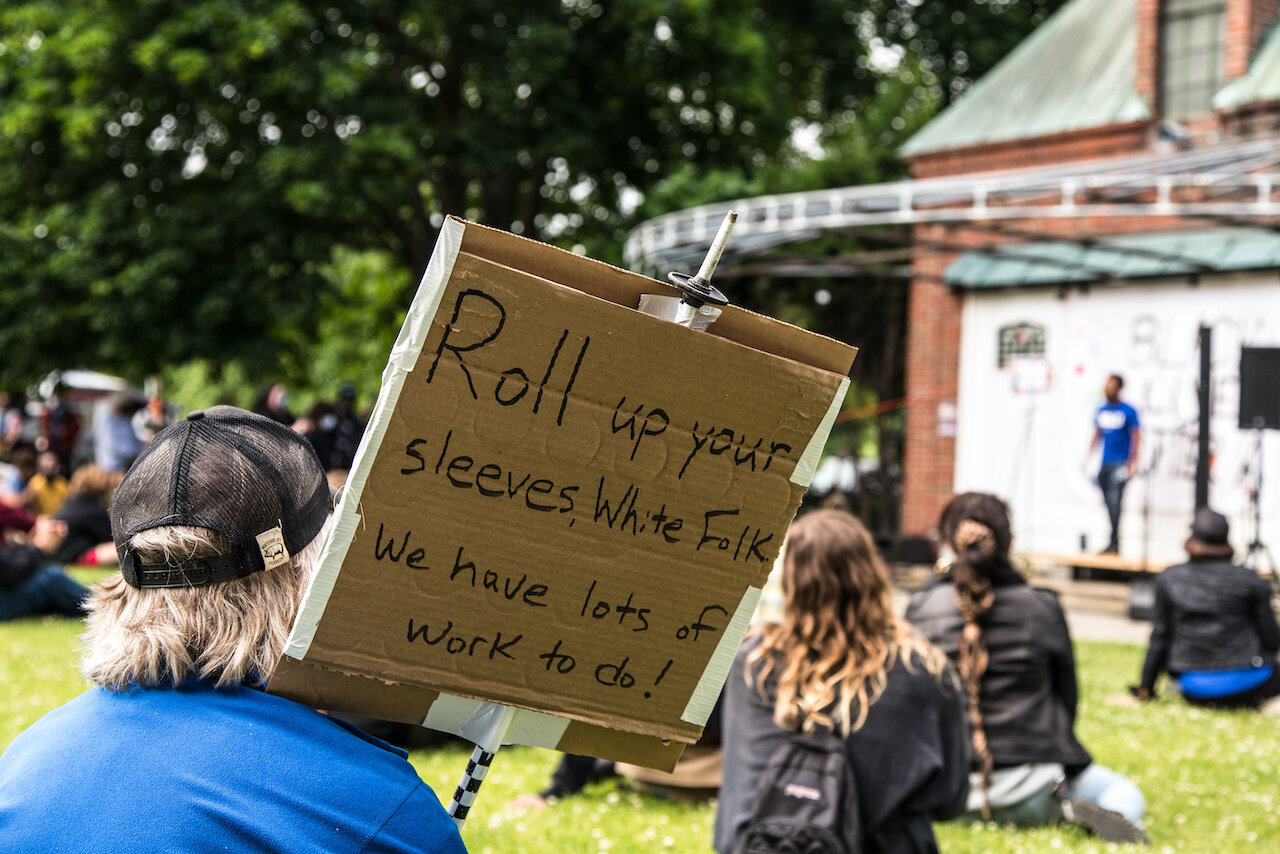
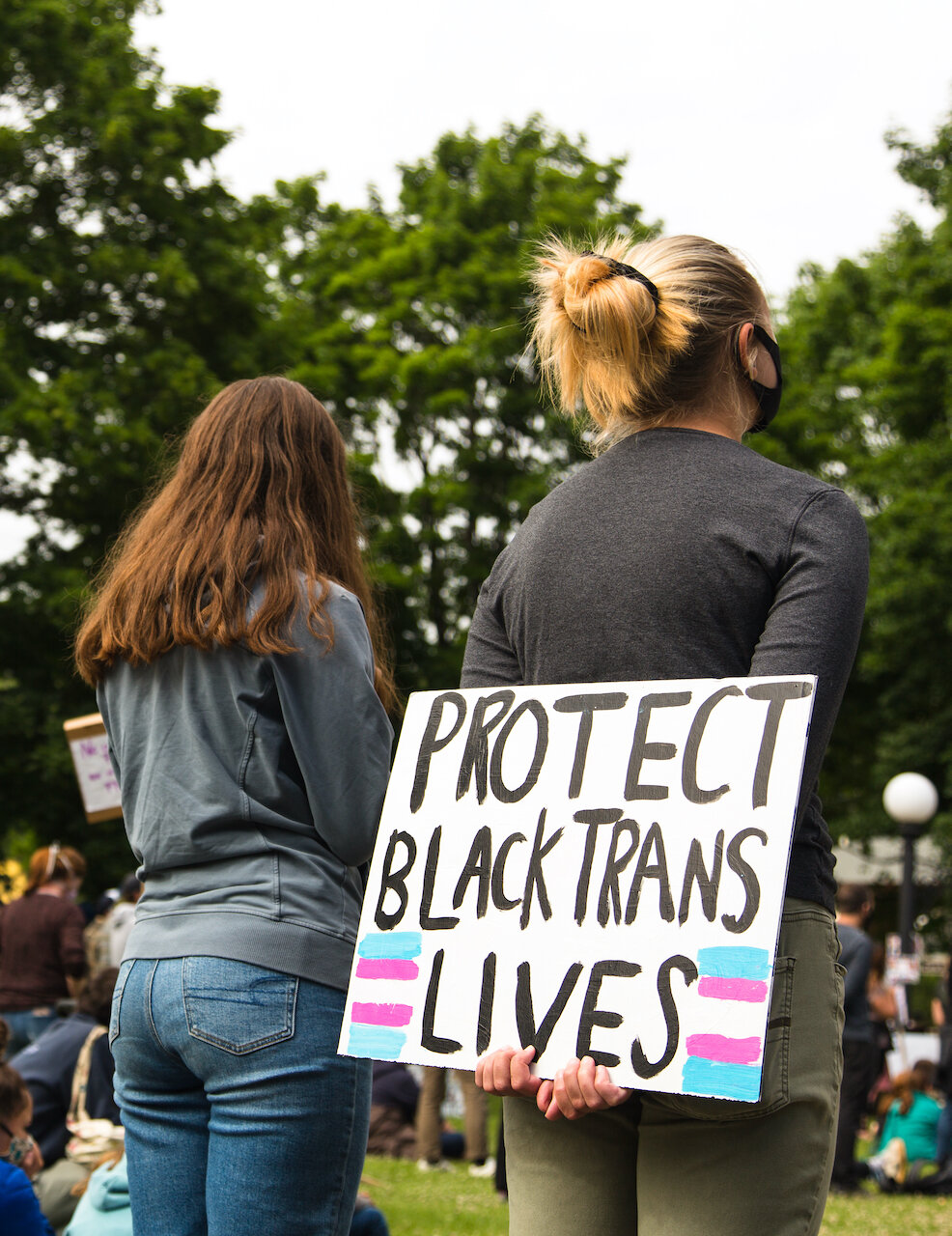
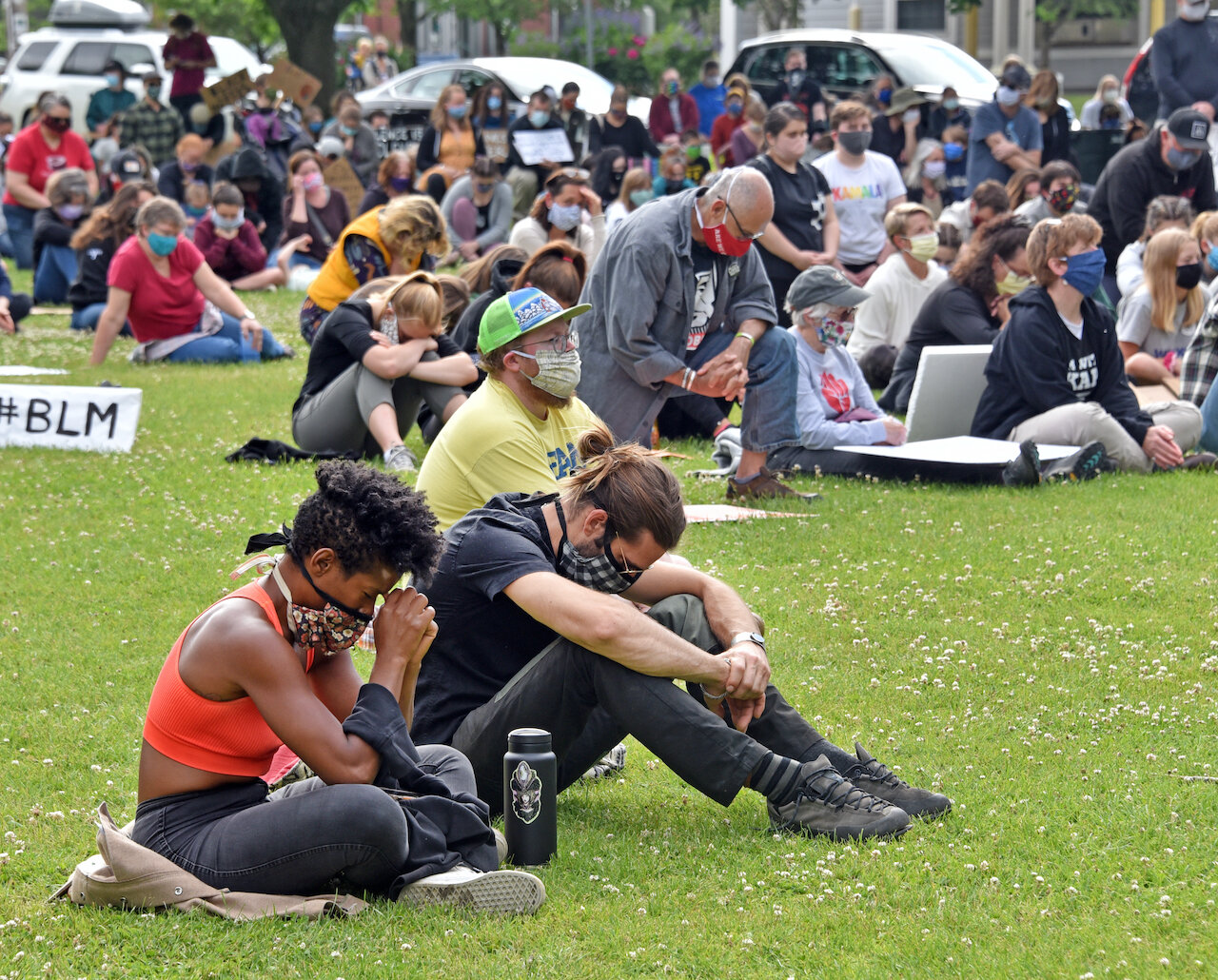

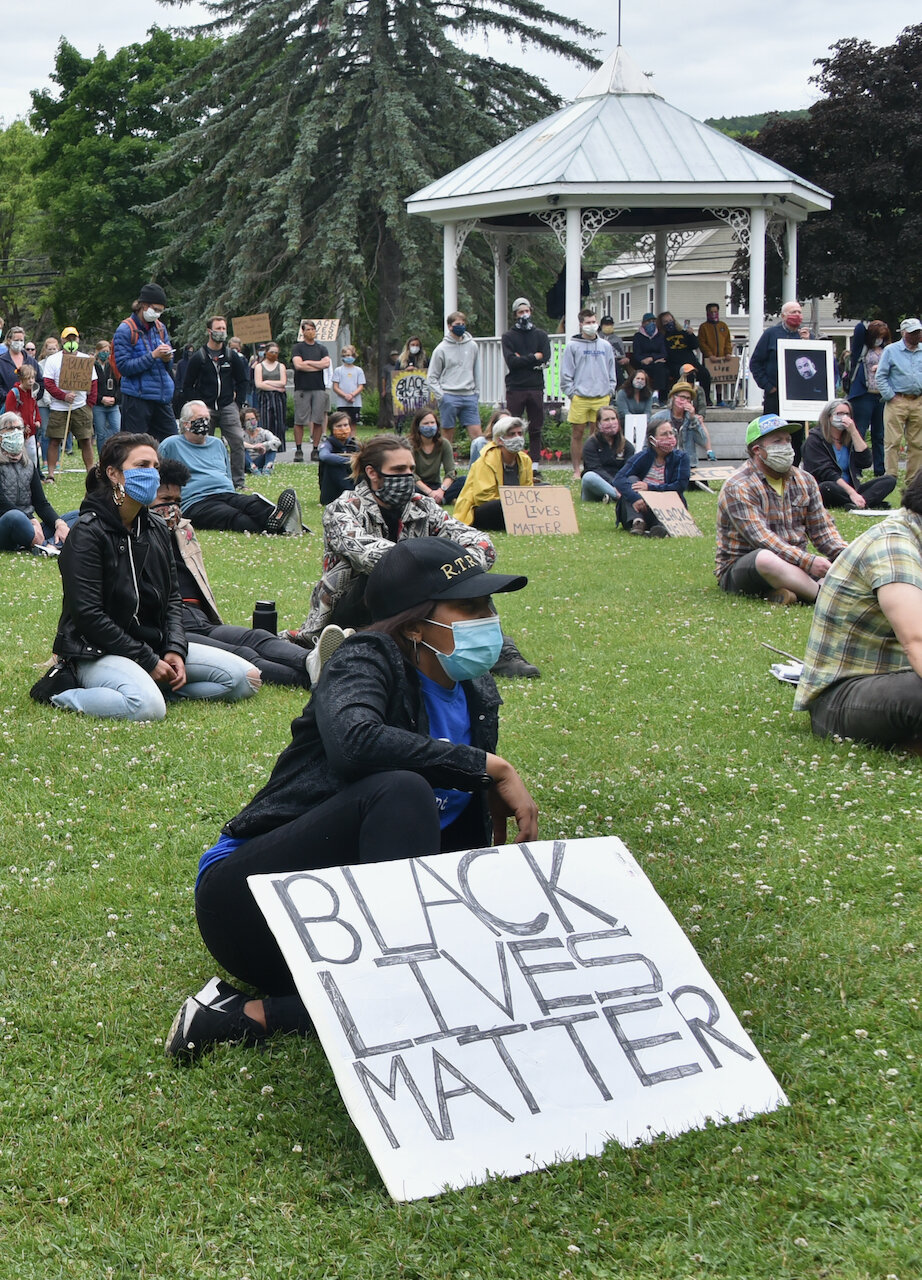
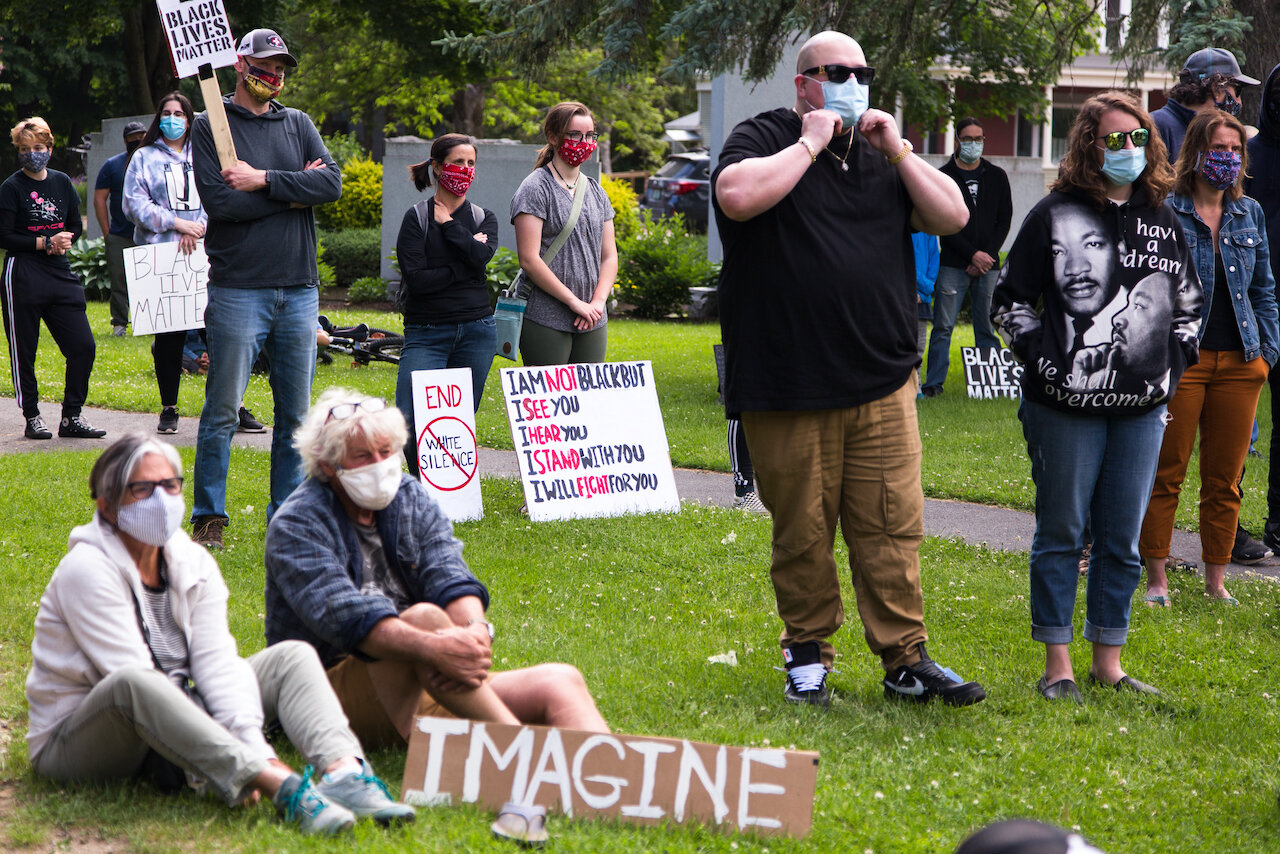
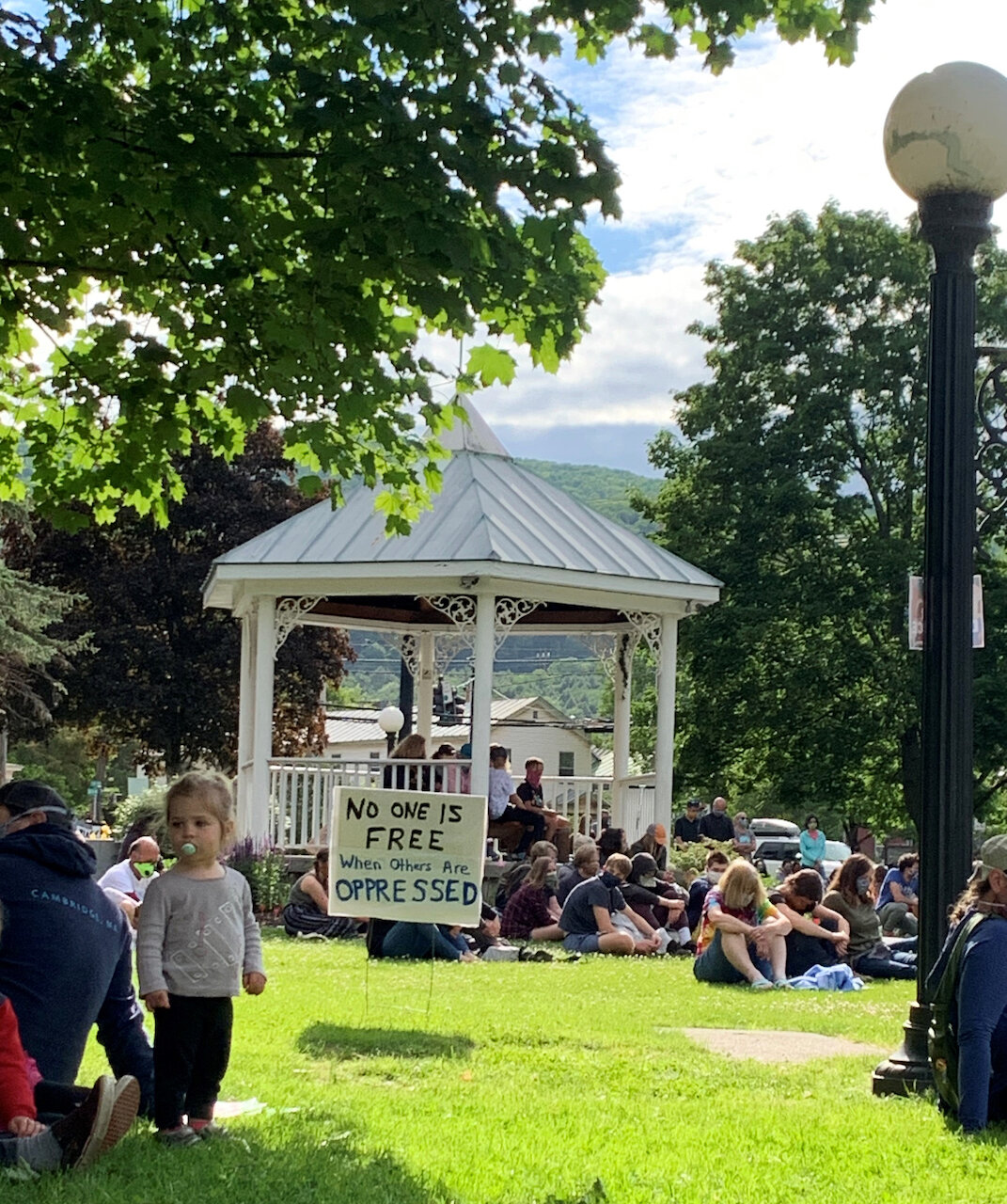
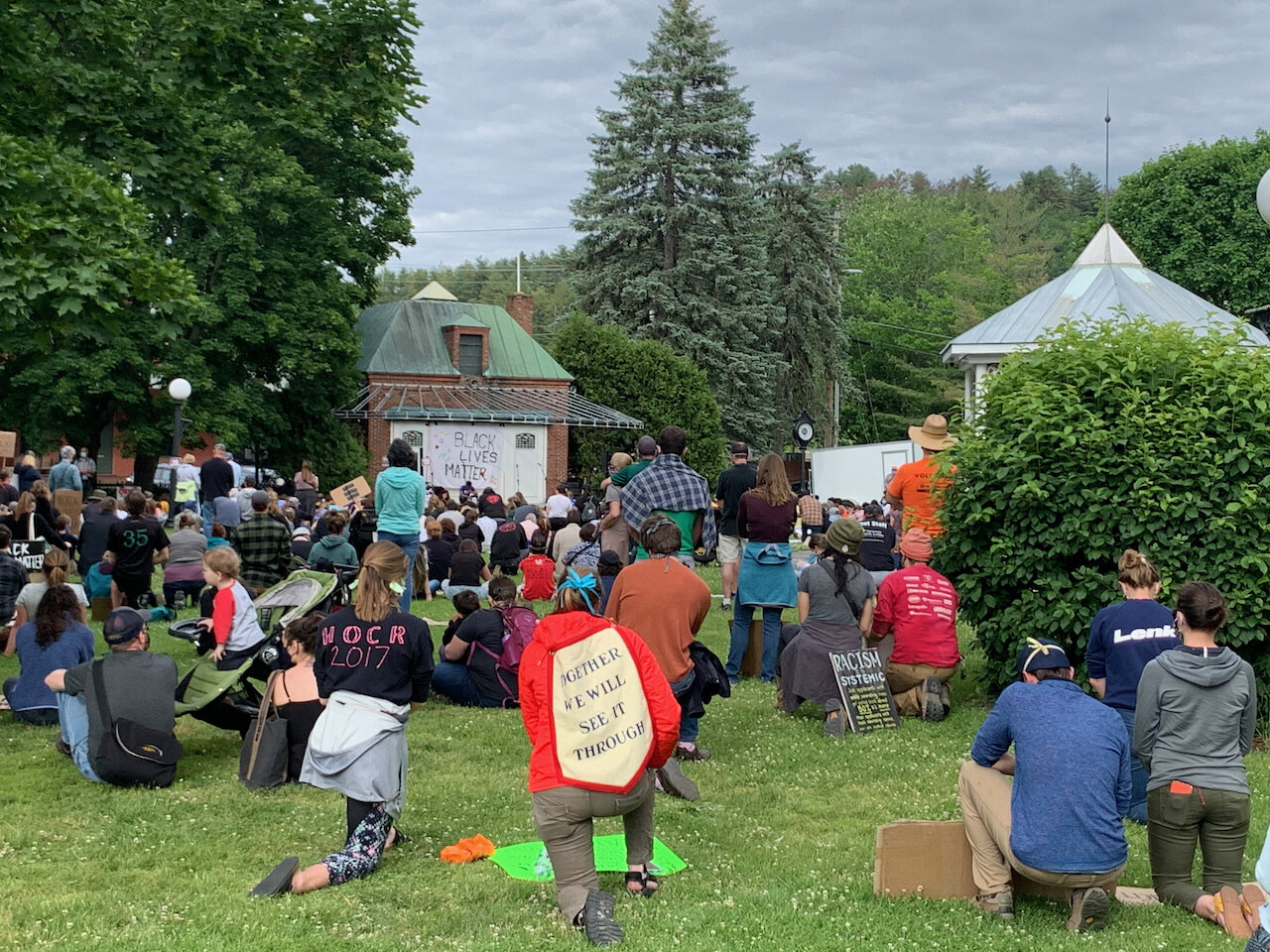
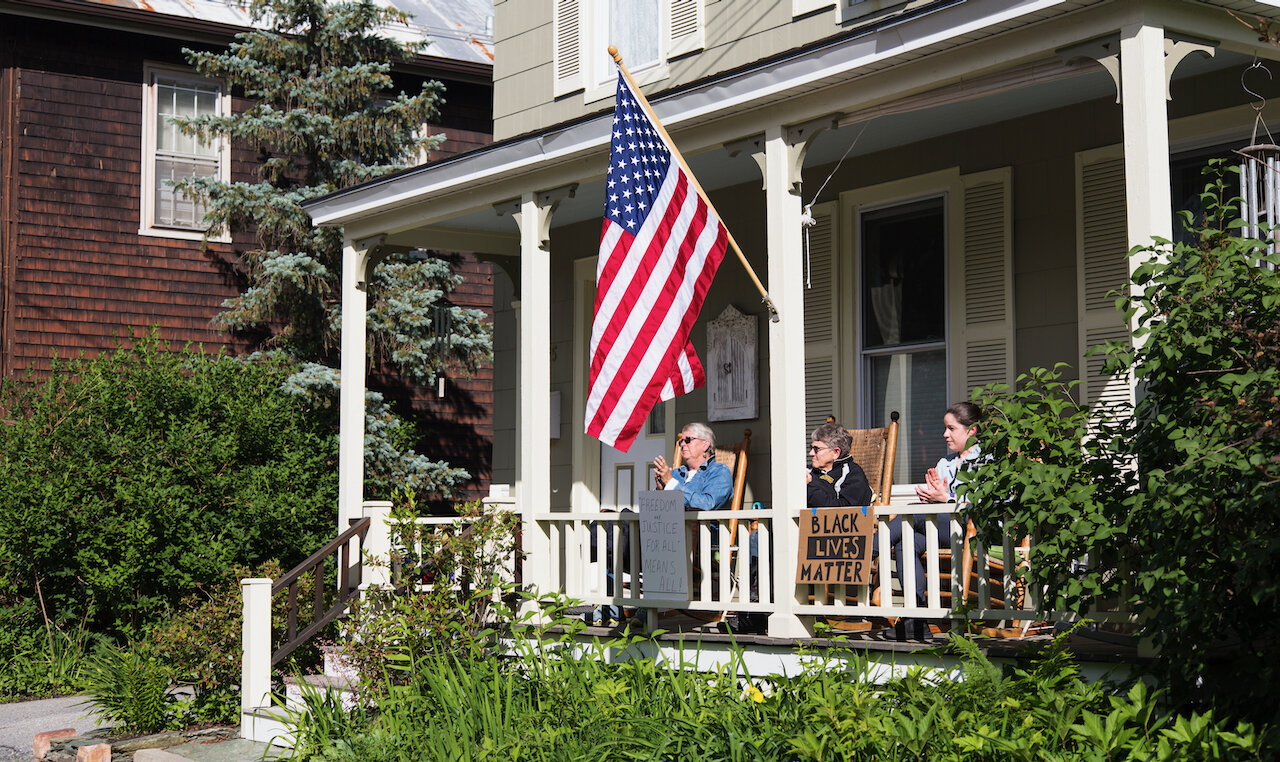

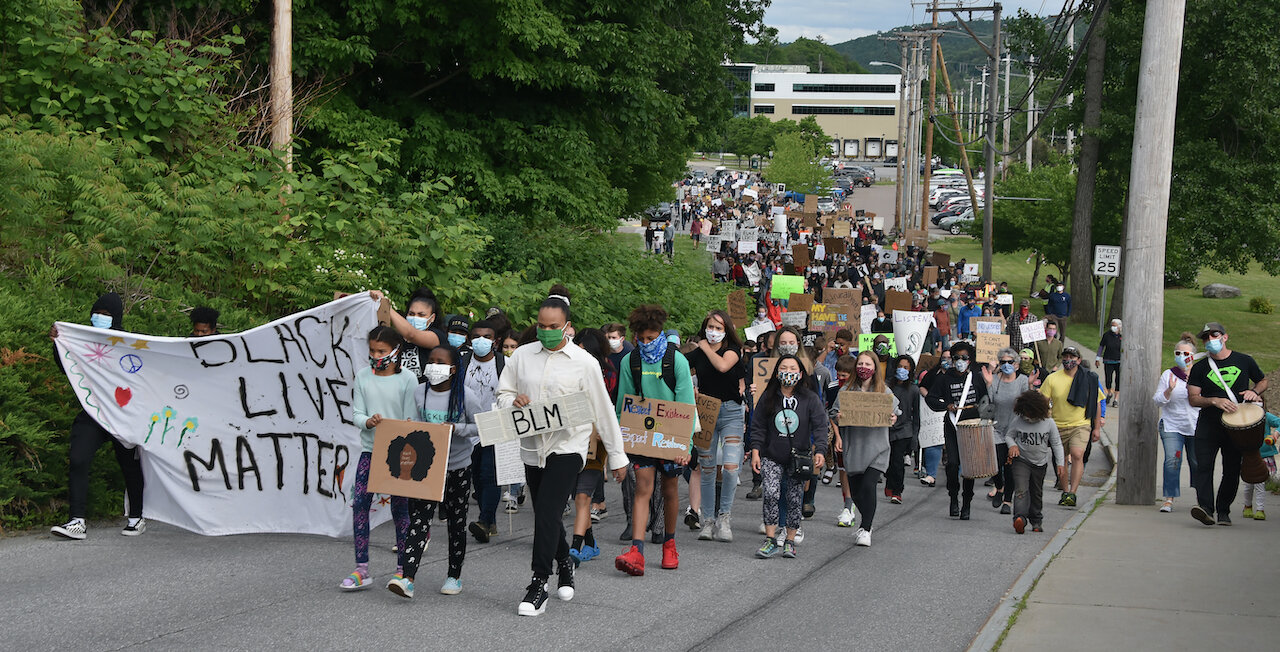



A crowd of about 500 Waterbury and area residents filled Rusty Parker Park on Sunday for the Rally Against Racism featuring a number of speakers including young people sharing their experiences with racism in Vermont and the Waterbury community.
Drawing a crowd of all ages including many families with young children, the event was organized by The Children’s Room and ACLU Vermont. Children’s Room Coordinator Naomi Alfini said organizers planned the rally after hearing recent comments from people of color about experiences with racism in local schools.
“We’ve called this gathering today to acknowledge that we hear our community members impacted by racism and police brutality. We want to come together in solidarity with families and children of color, and we want to learn about action steps we can take with the ACLU,” Alfini told the crowd.
The rally began with speakers telling stories about encountering racism in Vermont, and it included a short march through downtown Waterbury.
Waterbury resident and ACLU Vermont representative Maroni Minter helped organize the event and served as the host before delivering remarks of his own. He led the crowd to repeat the message “Black Lives Matter” which got a resounding response from the audience, many of whom held signs with the same message as well as other slogans such as “Silence is Violence,” “No Justice, No Peace,” and “Defund the Police.”
The majority of attendees wore masks given public health concerns, and around the COVID-19 virus and organizers also handed out masks.
As people filtered into the park, Minter brought the first guest to the stage. Rajnii Eddins, a black artist, read one of his poems with an intense delivery that held people’s attention.
In the middle of the poem, Eddins led the audience in a three-minute call and response that named black Americans harmed by police brutality including George Floyd, Ahmaud Arbery and Breonna Taylor along with more than 80 others.
The next speaker was Damien Garcia who spoke at the Montpelier Black Lives Matter rally on June 7 where he described his experiences as a Black boy in Vermont’s public-school system. Garcia, who just finished eighth grade at Crossett Brook Middle School, first spoke directly to Vermont’s legislators saying, “If you’re here just to get political points then I’d rather you not be here at all.”
He implored parents and schools alike to teach kids about racism. “Parents, teach your kids how to treat black individuals as equals, not any different,” he said. “Please, please teach your children.”
Schools especially must teach about racism and bias, Garcia said. “Make it required. Because it shouldn’t be black people’s jobs to teach white people how to treat them.”
In an interview during the march, Waterbury resident and school Principal Tom Drake said school officials were already meeting to discuss system-wide anti-racism education. On Tuesday, the Harwood Unified Union School District announced the formation of a task force to address race issues in the school system.
‘A life you don’t want to live at all’
Garcia was one of a handful of young people who addressed the crowd on Sunday. During the open mic section, a girl named Serenity told of being asleep in a car with family members when they were stopped by police. She imagined what it would have been like if she had been awake for that experience saying, “I would have known that fear.”
She explained that even as a child, she is treated differently because of her race. “It’s just a life you don’t want to live at all. For all of you white people, you are very lucky because you don’t want to get treated the way black people do.”
Her remarks drew applause and cheers. Minter returned to the microphone. “Wow,.” he said. “The best speakers are usually the ones what come out of nowhere and have no notes… That was really inspiring.”
Another speaker was Julio Desmont, a Hatian immigrant, painter, and self-described “art activist.” He said he considered Vermont a place with fewer racial problems than elsewhere, but he can still recount examples of being a target of racism. The current outpouring of activism underscores that this is a promising time for change, Desmont added.
“I can see all these young kids here - they are our tomorrow,” he said. “It makes me feel hopeful.”
Duxbury resident Life Legeros, an organizer of weekly community dialogues at the Waterbury Public Library, urged listeners to educate themselves by listening to Black Vermonters. “We’re coming into this game now, but Black people have been experiencing racism for 400 years. We have black kids in our community calling us out on this issue, and that ain’t right.”
Alfini also commented on her views of racism and white privilege. “Some of us white people here have signed petitions or attended protests about racism in the past, but too few of us make it a daily effort to stand up for people of color and take direct action against racism. That's the privilege of being white - we can choose if and when to engage with these issues.”
‘Racism in our culture’
Alfini then told of regularly driving past a Confederate flag in her Duxbury neighborhood with her young son in the car and how she thinks about whether and how to talk about it with him.
“In my silence though, that flag becomes part of the regular scenery for him. It’s part of normal. It's part of home, it's part of him. I’m realizing now that it’s only by intentionally taking anti-racist steps to talk about it with him that I can counter the insidious tendrils of racism that are ever-present in our culture.”
Minter returned to speak about his own experiences as a black man in Vermont since moving to Vermont in 2004. A Harwood Union High School graduate, he now works with ACLU Vermont as a campaign director advocating reforms for America’s prison system. Minter told of being called racial slurs by classmates and being pulled over by police without probable cause, something statistics show is a familiar experience for Black Vermonters.
“To me ‘Black Lives Matter’ is an anthem,” Minter said. “But stating that ‘Black Lives Matter’ does not imply that other lives don’t matter. Of course all lives matter. It doesn’t need to be said because all lives don’t matter if Black lives don’t matter.”
In closing, Minter listed bills under consideration in the state Legislature focusing on a number of racial justice issues including police use of deadly force and police de-escalation training (House bills 808, 464); studying reparations and creating a position for state equity in state government (House 478, 937); and data collection around racial equity in law enforcement (Senate 219).
Silence broken
Adopting a popular protest gesture used across the country in recent weeks, Minter called for the crowd to observe an 8-minute 46-second period of silence to highlight the time George Floyd was held down by the knee of a Minneapolis police officer before his death. Introducing the moment of silence, Minter reminded the audience that “We are not immune to racism in Vermont.”
Many in the crowd took a knee or sat quietly. Minutes into the exercise, the quiet was broken as a woman in a passing car cried out towards the assembly in the park: “White lives matter too...white lives matter.”
When the silence was over, Garcia returned to the microphone and said, “Did you need proof that Vermont is no exception? Well, there you have it.”
Organizers then assembled the crowd for the march from Park Row to Railroad Street to Stowe Street with people of color leading the way carrying a Black Lives Matter banner. Others played percussion instruments to accompany the protestors’ chants. From Stowe Street, the crowd headed to Main Street and back to the park.
A state police cruiser with a trooper parked at the Main Street intersection as marchers proceeded along the sidewalk alongside motorists slowly navigating the gravel section of street due to road construction. Some passersby in vehicles honked and gave the demonstrators a thumbs up. Others weren’t so supportive. One man in a pickup truck waved his middle finger at the marchers and called out, “Black lives don’t matter” to which the crowd spontaneously began chanting “Black Lives Matter” in return.
Back at Rusty Parker Park, protestors dispersed while six musicians took turns performing on the bandstand. The first song was “Man in the Mirror,” by Michael Jackson, its lyrics reflecting Garcia’s words earlier when he told the crowd: “We can’t make a change until you change yourself.”
Jesse McDougall lives in Waterbury Center and is a student at the University of Toronto.
